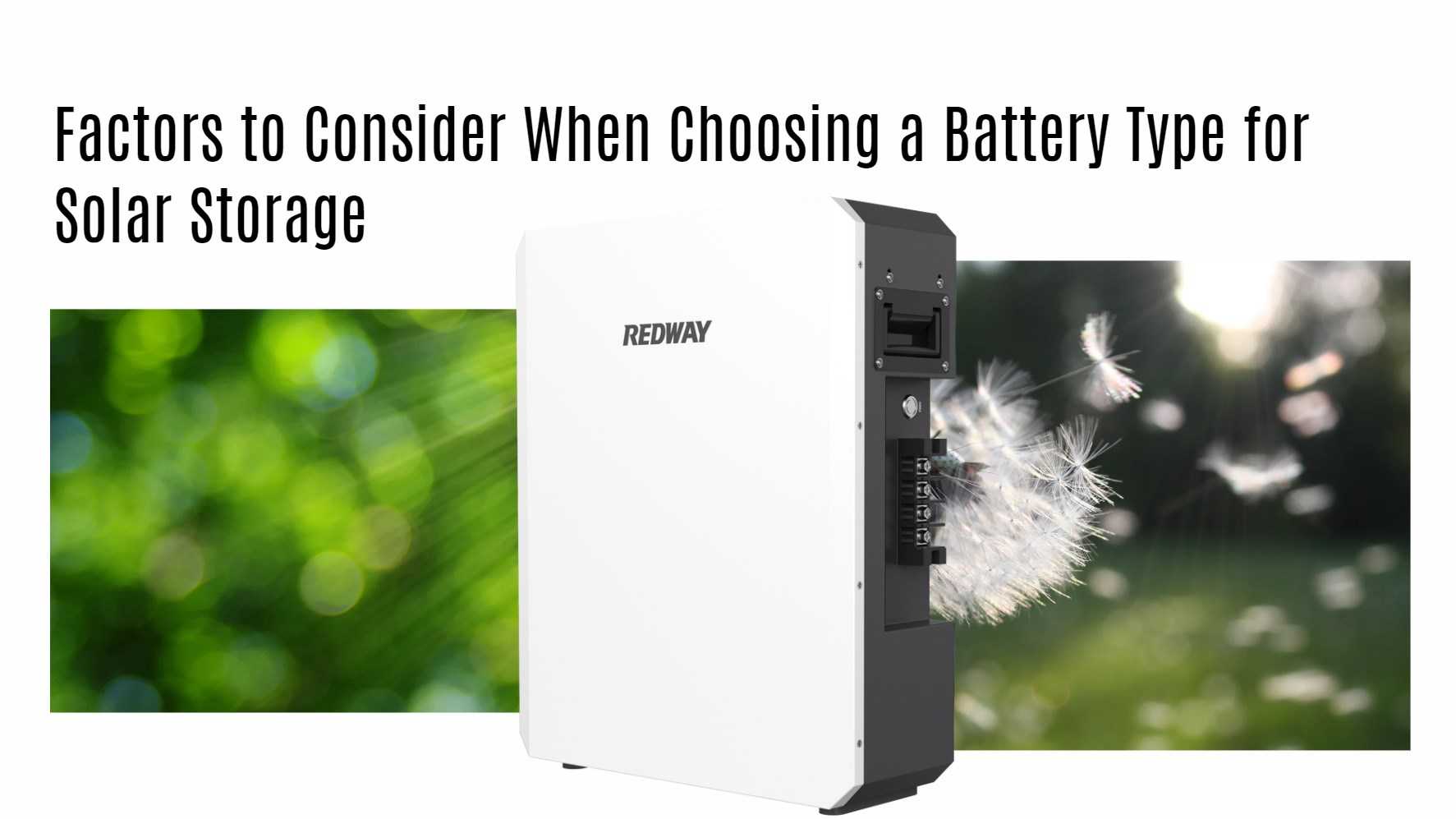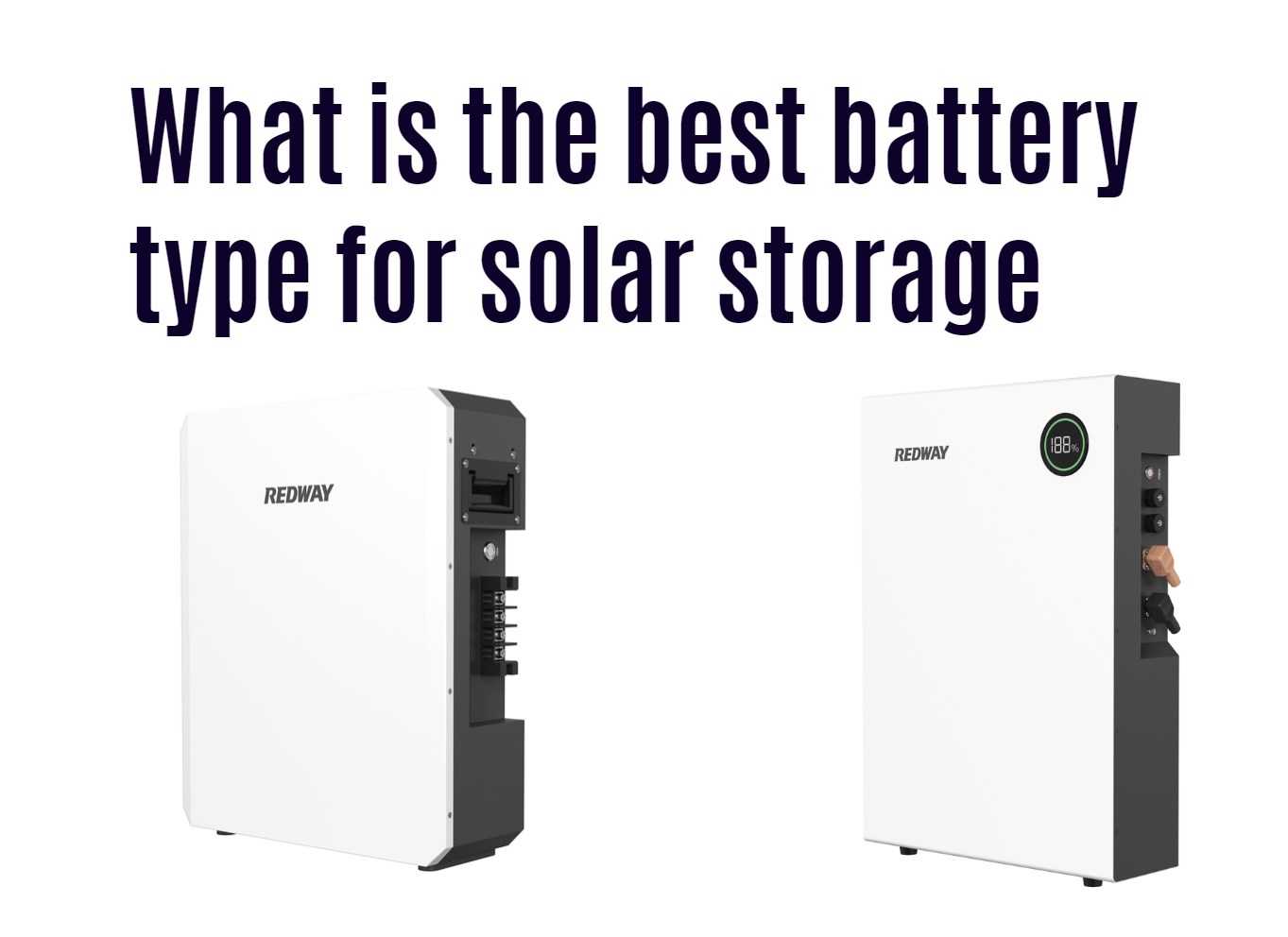Welcome to the world of solar storage – where renewable energy meets innovative technology to power our homes and businesses. As we strive towards a more sustainable future, harnessing the power of the sun through solar panels has become increasingly popular. However, one key element that often gets overlooked is the type of battery used for storing this valuable energy. In this blog post, we will explore the different types of batteries available for solar storage, compare their pros and cons, discuss factors to consider when choosing a battery type, provide tips on maintenance, and peek into the exciting future of solar battery technology. So sit back, relax, and let’s dive into the enlightening world of solar storage batteries!
Different Types of Batteries for Solar Storage
When it comes to choosing the right battery for your solar storage system, there are a few different options to consider.
Lead-acid batteries have been around for a long time and are known for their reliability and affordability. They are a solid choice for those on a budget, but they do require regular maintenance.
Lithium-ion batteries, on the other hand, are becoming increasingly popular due to their high energy density and longer lifespan. Although they tend to be more expensive upfront, they often prove to be more cost-effective in the long run.
Nickel-cadmium batteries offer good performance in extreme temperatures and have a long cycle life. However, they are not as commonly used in residential solar storage systems compared to lead-acid or lithium-ion batteries.
Each type of battery has its own set of pros and cons, so it’s important to carefully weigh your options before making a decision that best suits your specific needs.
Lead-Acid Batteries
When it comes to solar storage, Lead-Acid Batteries have been around for a long time. They are known for their durability and reliability in storing energy generated by solar panels. These batteries are cost-effective, making them a popular choice for residential solar systems.
Lead-Acid Batteries come in two varieties: flooded lead-acid and sealed lead-acid. Flooded batteries require maintenance such as adding water periodically, while sealed batteries are maintenance-free. This distinction allows users to choose based on their preferences and needs.
Although Lead-Acid Batteries have been overshadowed by newer technologies like lithium-ion batteries, they still offer advantages in terms of initial cost and availability. However, they do have limitations in terms of depth of discharge and overall lifespan compared to lithium-ion alternatives.
For those looking for a reliable and affordable option for solar storage, Lead-Acid Batteries remain a viable choice worth considering.
Lithium-Ion Batteries
Lithium-ion batteries have gained popularity in the solar storage industry due to their high energy density and longer lifespan compared to traditional lead-acid batteries. These batteries are lightweight, making them easier to install and move if needed. One of the key advantages of lithium-ion batteries is their ability to hold a charge for an extended period, which is perfect for storing solar energy generated during peak sunlight hours for later use.
Moreover, lithium-ion batteries require minimal maintenance, saving you time and effort in the long run. They also have a higher efficiency rate compared to other battery types, allowing you to maximize the amount of stored solar power utilized in your home or business. Additionally, these batteries have a lower self-discharge rate, ensuring that your stored energy remains available when you need it most.
Lithium-ion batteries offer a reliable and efficient solution for solar storage needs, providing users with a cost-effective and sustainable way to harness renewable energy sources.
Nickel-Cadmium Batteries
Nickel-Cadmium batteries, commonly known as NiCd batteries, have been a popular choice for solar storage systems due to their durability and reliability. These batteries are known for their ability to handle deep discharge cycles without losing capacity over time.
One of the key benefits of Nickel-Cadmium batteries is their resistance to extreme temperatures, making them ideal for use in locations with harsh weather conditions. Additionally, they have a long lifespan compared to other battery types, which can result in cost savings over the long run.
However, it’s important to note that NiCd batteries are bulkier and heavier than lithium-ion alternatives. This can make installation and maintenance more challenging, especially in limited space scenarios.
While Nickel-Cadmium batteries have proven themselves as a robust option for solar storage applications, advancements in technology have led many consumers to explore newer options such as lithium-ion batteries.
Comparison of Battery Types – Pros and Cons
When it comes to solar storage, choosing the right battery type is crucial. Let’s explore the pros and cons of the three main options available: lead-acid, lithium-ion, and nickel-cadmium batteries.
Lead-acid batteries are the most affordable option upfront but have a shorter lifespan compared to lithium-ion batteries. They are reliable and have been used for decades in off-grid solar systems. However, they require regular maintenance and have lower energy density.
Lithium-ion batteries are known for their high energy density, longer lifespan, and low maintenance requirements. Although they come with a higher price tag, their efficiency and performance make them a popular choice for residential solar storage systems.
Nickel-cadmium batteries offer good temperature tolerance and long cycle life. However, they are less common in residential settings due to their environmental impact and higher cost compared to other options.
Each battery type has its own set of advantages and limitations that should be considered based on individual needs when setting up a solar storage system.
Factors to Consider When Choosing a Battery Type for Solar Storage
When it comes to choosing the right battery type for your solar storage system, there are several factors to consider.
First and foremost, you’ll want to think about the capacity of the battery – how much energy can it store? This will depend on your specific energy needs and consumption patterns.
Another important factor is the lifespan of the battery. Some batteries have a longer life expectancy than others, so you’ll need to weigh this against the initial cost.
Consider the efficiency of the battery as well. How well does it convert and store energy? A more efficient battery will help maximize your solar power usage.
The size and weight of the battery are also crucial considerations, especially if space is limited at your installation site.
Don’t forget about safety features. Look for batteries with built-in protection mechanisms to prevent overcharging or overheating.

Tips for Maintaining and Extending the Lifespan of Your Solar Storage Battery
When it comes to maintaining and extending the lifespan of your solar storage battery, there are a few key tips you can follow. Make sure to regularly check the state of charge of your battery using monitoring tools or software provided by your system. This will help you keep track of its performance over time.
Keep an eye on the temperature at which your battery operates. Extreme temperatures can affect the efficiency and longevity of the battery, so try to maintain a moderate climate for optimal performance.
Additionally, ensure that your solar panels are clean and free from debris that could obstruct sunlight absorption. Clean panels will help maximize energy production and reduce strain on your battery.
Consider investing in surge protectors or voltage regulators to protect your battery from power surges or fluctuations that could damage its components. By following these simple tips, you can help prolong the life of your solar storage battery and optimize its performance.
The Future of Solar Battery Technology
As technology continues to advance at a rapid pace, the future of solar battery technology looks promising. Researchers and engineers are constantly exploring innovative ways to improve battery efficiency, storage capacity, and lifespan.
One exciting area of development is the use of solid-state batteries for solar storage. These batteries offer higher energy densities, faster charging capabilities, and improved safety compared to traditional lithium-ion batteries.
Moreover, advancements in AI-powered battery management systems will enhance the overall performance of solar storage systems by optimizing energy usage based on weather conditions and household consumption patterns.
Furthermore, integrating renewable energy sources like wind and hydro power into hybrid energy systems with solar storage will provide more sustainable solutions for off-grid locations or areas prone to power outages.
The future holds great potential for enhancing solar battery technology to make clean energy more accessible and reliable for everyone.
Conclusion
When it comes to choosing the best battery type for solar storage, there are several factors to consider. Lead-acid batteries offer a cost-effective option with reliable performance but require more maintenance. Lithium-ion batteries provide high energy density and longer lifespan but come at a higher price point. Nickel-cadmium batteries are durable and can withstand extreme temperatures, making them suitable for harsh environments.
The best battery type for your solar storage system will depend on your specific needs and budget. Regular maintenance and proper usage can help extend the lifespan of your battery regardless of the type selected. As technology continues to advance, we can expect even more efficient and sustainable options in the future.
Understanding the differences between lead-acid, lithium-ion, and nickel-cadmium batteries is crucial in making an informed decision for your solar storage needs. By considering factors such as cost, performance, lifespan, and environmental impact, you can choose a battery that maximizes the efficiency of your solar energy system while minimizing long-term costs.




